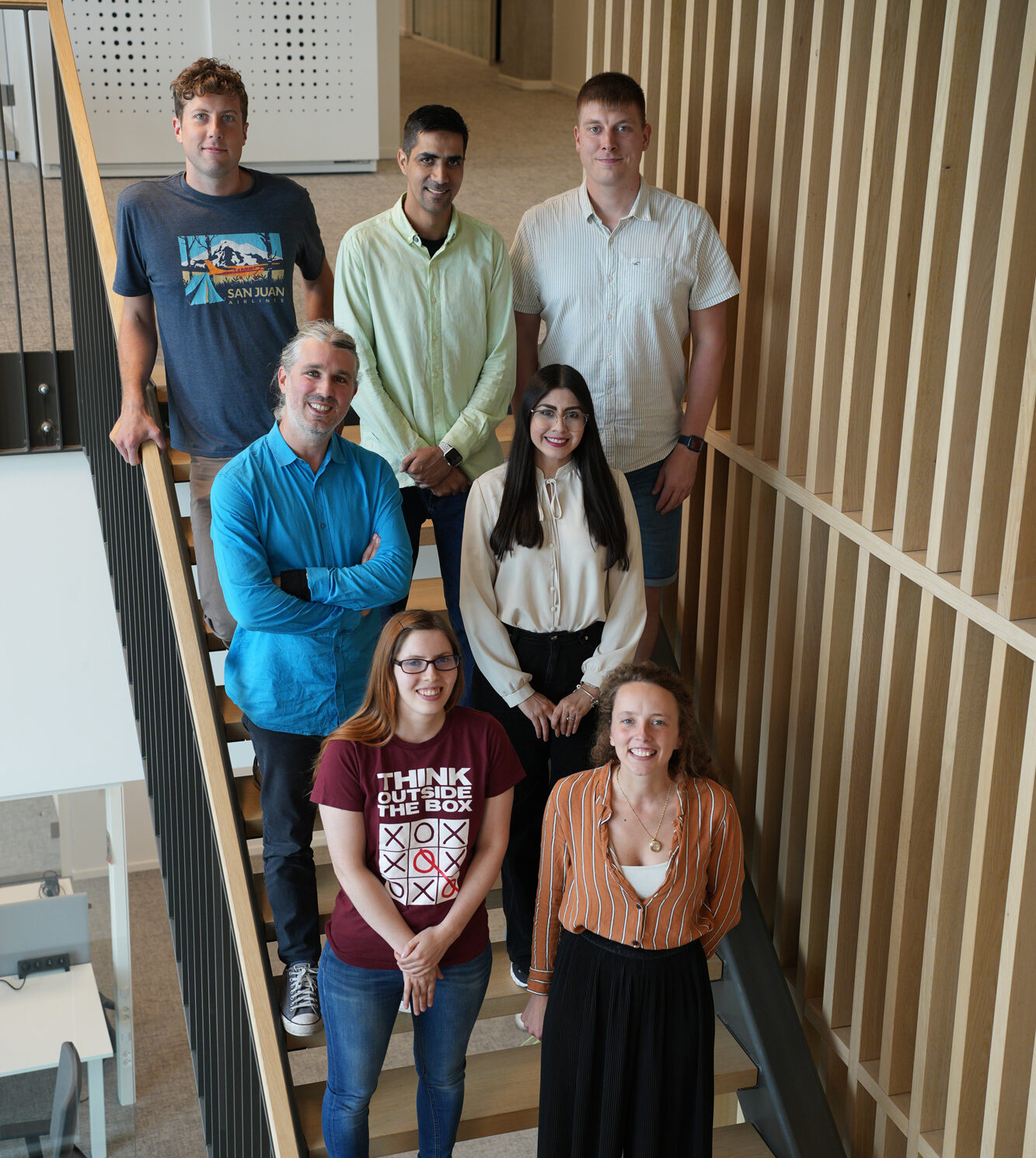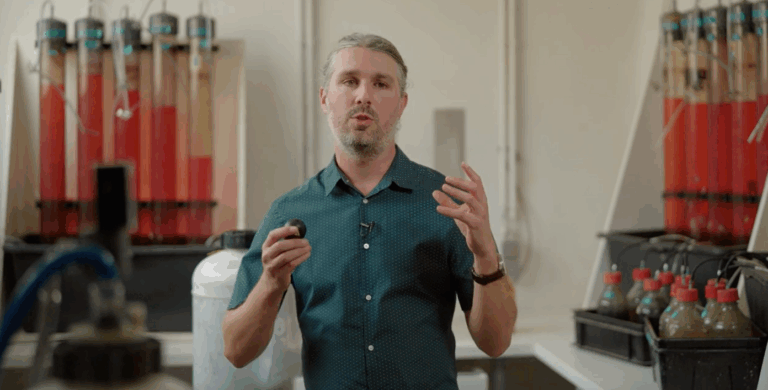
The Architecture of Microbial Ecology and Engineering (AMiE2) research team, led by principal investigator (PI) Prof. Jo De Vrieze, focuses on microbial processes for engineered ecosystems in which organic waste valorisation, through the development of novel tools and technologies, is targeted. The research at AMiE2 is focused around four pillars. The first pillar focuses on the process of anaerobic digestion for the conversion of novel and emerging organic waste streams, considering both methanogenesis and sulphate reduction, into biogas as a renewable alternative to natural gas. The second pillar concerns the valorisation of biogas and biomethane into novel, high-value products, making use of consortia of methane oxidizing bacteria. In the third pillar, in-depth understanding of the 3D organization of microbial entities and their interaction is targeted. The fourth pillar aims towards applying engineered microbial processes in the Global South context. The AMiE2 research time currently hosts three postdoctoral researchers and six PhD students.
Research Projects

Biogas-MAMBO
The overall target of the Biogas-MAMBO project, funded by FWO, is to develop a series of combined technologies to upgrade biogas, produced from organic waste, into biomethane and to a high-value end product, i.e., microbial protein. We focus on the (in)direct growth of methanotrophic bacteria on biogas and biomethane towards high-value and protein-rich microbial biomass.

LeAD: Leveraging Anaerobic Digestion
Anaerobic digestion plays a key role in advancing sustainable waste treatment and resource recovery. Through the EU-funded MSCA-DN LeAD project, the aim is to address key knowledge gaps and develop robust models and technologies in anaerobic digestion under stressed environmental conditions. We focus on the interaction of methanogens and the importance of sulphate reduction in the anaerobic digestion process.
The African Centre for Sustainable Cities Studies
Dar es Salaam is expected to attain a megacity status by 2030 with over 10 million people, with profound implications in terms of labour markets, housing, service infrastructures, environmental management and city-wide spatial planning. To tackle these challenges, Ardhi University, in collaboration with VLIR-UOS, will develop an African Centre for Sustainable Cities Studies to tackle these challenges and contribute to the sustainable growth of Dar es Salaam and its wider region in line with the Sustainable Development Goals (SDGs) in general and SDG 11. In this project, we are involved in sub-project 2 that focuses on Decent Housing.
Sustainable development of the South Central Coast and Central Highlands of Vietnam
The “Institutional University Cooperation partnership with Quy Nhon University” (IUC-QNU), funded by VLIR-UOS, is composed of 7 sub-projects with the goal of improving Quy Nhon University’s capacity to improve the livelihoods and living conditions of the local communities in the South Central Coast and Central Highlands of Vietnam towards sustainable development”. We are involved in sub-project 2 in which we focus on developing reliable, sustainable and cheap nanomaterials for the removal of H2S from biogas.
Greenlake
GreenLake co-creates a research-practice platform (RPP) and innovative actionable research to enhance the sustainable development of Floating and Flood-Prone (FFP) villages in Benin, with lessons for West-Africa and beyond. Within the time frame of the GreenLake TEAM project, funded by VLIR-UOS, we co-create research on the design, adoption, and impact of Toilet Linked Biogas Plants (TLBPs). The TLBP will reduce open defecation and wood fuel use, thereby leading to knock-on effects on water quality, waterborne and respiratory diseases, the fishery stock, food security and deforestation.
EctoMet
In this project, funded by FWO, we will consider a novel value chain for biogas towards the production of the high-value bio-based chemical of ectoine, using a consortium of methanotrophic bacteria and microalgae or “methalgae”.
Related news
-
Three new FWO mandates starting at CMET
Hannah De Sutter Aquaculture loses billions annually due to bacterial diseases, with Vibrio species from the Harveyi clade among the most harmful pathogens. As antibiotics resistance increases, alternative approaches are being investigated, including antivirulence therapy: a strategy that disarms pathogens instead of killing them. My research focuses on the ToxR regulon, a virulence regulatory system in Vibrio spp. By using small-molecule […]
-
Microbial protein from biogas: Nerdland Festival
Will we soon be eating a bacteria sandwich? Our planet has 8.2 billion people, millions of whom are malnourished. Soy seems like a promising solution, but still has a strong ecological impact. Can bacteria play a role in this? Can they convert waste into sustainable food? How does that work exactly, and what does it […]

